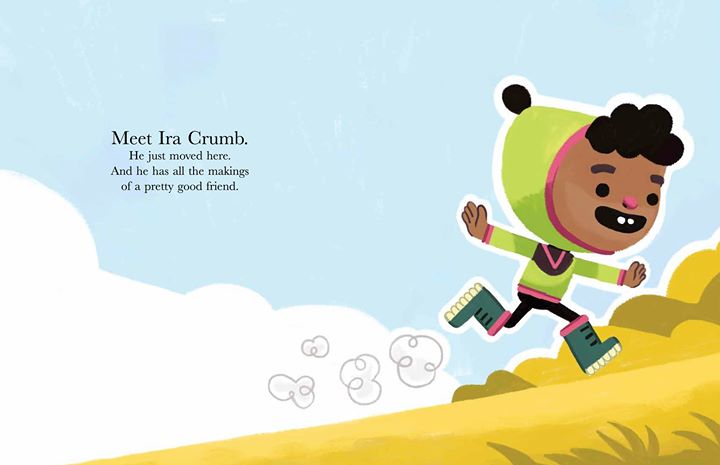What I Wish Every Aspiring Children’s Author Knew About Publishing
By Naseem Hrab
It seems like book publishing is a mysterious, captivating industry to many people. It barely gets represented in pop culture and when it does get featured (Elf and Fatal Attraction come to mind), the representation doesn’t seem very accurate (save for Jane the Virgin). And yet many people put “write novel” on their bucket list because, apparently, writing and getting published is a very easy thing to do. Writing a barely palatable draft of a 500-word picture book for children feels like a near-impossible task to me most days, so let’s take this opportunity to talk about all the things I wish all aspiring children’s authors knew!
You Need More Than an Idea
Long-lost family members, hardly friends, minor acquaintances and complete strangers frequently approach me and say, “Hey! I have an idea for a children’s book.” To be honest, I don’t entirely love when this happens. I know I might alienate my aforementioned family members, friends, acquaintances and strangers by saying that, but I’m going to risk it for the sake of truth. I’d much prefer if people would approach me and say, “Hey! I’ve finished a manuscript for a children’s book.”
Everyone has ideas for children’s books and very few people have completed manuscripts. Why? It could be because every idea seems perfect…until you actually try to do something with it. And then it shatters into a million pieces. But you need your ideas to shatter, so that you can actually build something from them. And you can’t just tell a publisher about your idea—you have to show them a finished manuscript. You wouldn’t walk up to a personal trainer and tell them that you’re gonna do ten push-ups and then just awkwardly stare at your arms indefinitely, would you?
Writing Children’s Books is Easy – Right?
I know, I know … We all see board books for babies with one word on each page and think, “Anyone can do this! Why not me?” Or we think we can write perfect rhyme in a couple of minutes, or dash off an incredible 300-word story in one evening and send it off to a publisher. The reality? You can’t! I can’t! We can’t!
After you write a first draft, you need to write a second draft, a third draft and so on … With each draft, you need to constantly push yourself to be more original, more innovative and really hone in on what you’re trying to say. (Hot tip: Always ask yourself the question, “What am I trying to say?” over and over.) After you’ve done all you can do—and only after you’ve truly done all you can do—should you feel barely comfortable to submit to a publisher. And if your manuscript is accepted by a publisher, it will then go through a rigorous editorial process. Though your editor will help you shape your manuscript, and teach you a lot about how to revise a manuscript, an editor can’t make you an amazing writer. That’s your job. (Your only job?)
Make Sure Your Concept and Execution Is Original
Most editors use the words “fresh voice” or “original stories” when they describe what they’re looking for in a manuscript. What is a fresh voice? What’s an original story? Well, basically, it’s a voice they haven’t heard before or a story they haven’t read before. And they’ve read a lot. Be inventive. Do your homework. After you’ve written your manuscript, seek out any and all books that seem similar to your book, and push yourself hard to revise your manuscript to ensure yours is different.
Your CanLit News
Subscribe to Open Book’s newsletter to get local book events, literary content, writing tips, and more in your inbox
No One Cares as Much About Your Book as You Do
Sadly, no one cares as much about your book as you do. Not even your mother. In fact, your mother may even dislike your books. Like mine. (No joke!) But that doesn’t mean that writing children’s books isn’t hugely rewarding. Only you can ensure that you make your writing a priority and only you can make your manuscript as strong as it can be. The joy has to come from the writing and revising. It has to come from the process of doing. There are thousands of children’s books published in North America every year and the odds of your book standing out in the marketplace in a big way is, well, as likely as spotting a unicorn. Also, no one really wants to hear about your writing or what you’re working on next at length. I think that talking about your writing is kind of like talking about your dreams—they’re really only meaningful to you. (That said, if you ever want to talk about my reoccurring dream with the hamsters just email me.) So, make sure the act of writing is meaningful to you and have fun with the process.
A Book Deal Does Not Mean You Can Afford a New House, But At Least One Kid Will Like Your Book
The bad news is that writing does not lead to riches. People think you can make money off of children’s books because all they hear about is J.K. Rowling. You know who they don’t hear about? Naseem Hrab (I just came up with that name—no relation) and her nine-to-five job and the writing she does at night and how the advances for her three books barely cover three months’ rent in Toronto.
The good news is that your heart will likely explode the first time someone (likely a best friend) sends you a photograph of their kid reading your book. And if that friend tells you that their kid asked for your book to be read to them over and over those exploded bits of your heart will explode into a million bits. This is what it’s all about, folks. This is what really matters.
And at least one kid will probably hate your book. (I met the kid who hates my book. I know it because told me over and over. I found his honesty … refreshing.) It will keep you humble and maybe make you want to try your hand at writing a book that might win that kid over. Or not, he was pretty mean about the whole thing.
The views expressed by Open Book columnists are those held by the authors and do not necessarily reflect the views of Open Book.
Naseem Hrab is the author of the picture books Ira Crumb Makes a Pretty Good Friend and Ira Crumb Feels the Feelings, illustrated by Josh Holinaty. Her comedy writing has appeared on McSweeney's Internet Tendency and The Rumpus. Sometimes Naseem likes to get up on a stage and tell true stories. She loves improv and coffee ice cream.
She worked as a librarian for a time and currently works in children's publishing.





